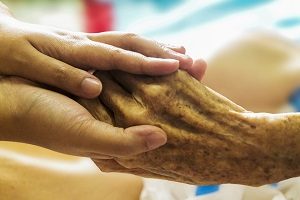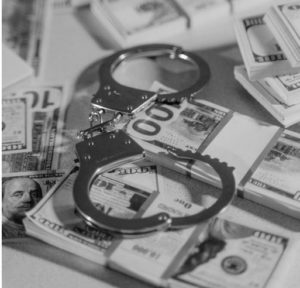Home Health and Hospice
 Home health care has long been recognized as vulnerable to fraud, waste, and abuse.
Home health care has long been recognized as vulnerable to fraud, waste, and abuse.
In 2015, Medicare reimbursed more than 11,000 home health care agencies approximately $18.4 billion for their services.
The Centers for Medicare & Medicaid Services (CMS) has estimated that $10 billion of those payments—more than half of the total reimbursement—were improper or fraudulent.
The potential for home health care and hospice fraud is so high that since July 2013, CMS has imposed moratoria on new home health agency enrollment in geographic areas determined to be at high risk for fraud.
Here is what you should know about these types of fraud in the healthcare industry.
Types of Home Health Care Fraud
Home health care fraud varies in nature, but the majority of fraud involves home health agencies billing for services that were not provided or billing for services that were not medically necessary.
The OIG pointed to several red flags suggestive of fraud including:
- Beneficiaries who had no recent visits with their supervising physicians to certify that the care ordered is medically necessary;
- Where home health care services were not provided following a hospital or nursing home stay;
- Where the primary diagnosis is diabetes or hypertension, which typically do not justify home health care services; and
- Beneficiaries with multiple home health readmissions in a short period of time.
Identifying Home Health Care Fraud
CMS relies on its beneficiaries to help root out fraud and abuse in home health care.
CMS specifically calls on beneficiaries to be on the lookout for—and report—activities that suggest a home health agency is committing fraud, including:
- Upcoding the types of services provided to receive higher payment;
- Submitting bills for patients who are not homebound;
- Visits by home health staff that are not medically necessary;
- Home health visits that a doctor ordered, but that a patient did not receive;
- Bills for services and equipment a patient never received;
- Fake signatures on medical forms or equipment orders;
- Pressure to accept items and services that are not necessary or that Medicare does not cover;
- Home health services provided that were not ordered by a physician; and
- A home health agency that offers free goods or services in exchange for Medicare numbers.
Physicians also play a key role in preventing home health care fraud.
They act as “gatekeepers” by certifying that the services ordered are medically necessary and by managing beneficiaries’ plans of care. Unfortunately, kickback schemes are on the rise in all areas of healthcare.
In the home health care context, physicians may be principal conspirators in fraud schemes by approving medically unnecessary home health care services in exchange for kickbacks. Kickbacks can come in many forms, including direct payment, free trips, and products.
Hospice Fraud
In the hospice area, certain familiar schemes overlap with home health care fraud, including paying or accepting kickbacks, billing for services not provided, and admitting patients who do not meet eligibility criteria.
Under Medicare hospice regulations, beneficiaries are only eligible for care if their hospice doctor and primary care physician certify that they have six months or fewer to live. Patients also need to choose palliative care over curative care to be eligible for hospice. A patient who does not meet these criteria is ineligible for hospice care. A common area of fraud in the hospice setting is providers admitting patients who they know are not terminally ill or who have life expectancies greater than six months.
One of the prime areas of fraud in the hospice setting is upcoding for “GIP” services.
GIP stands for “general inpatient care,” which is intended to be short-term inpatient care for symptom management and pain control that cannot be handled in other settings. GIP care is provided in a hospice setting but is reimbursed at several hundred dollars more per day than routine hospice palliative care.
Misuse of GIP includes care being billed but not provided and beneficiaries receiving care they do not need. In a 2016 report, the OIG found that, in just one year, hospice companies improperly billed the government for a third of all GIP stays amounting to over $250 million in fraud.
Speak to a Whistleblower Lawyer About Your Home Health Care or Hospice Fraud Case
At Constantine Cannon, our skilled whistleblower attorneys can assist you with your claim and answer any questions you may have. Please don’t hesitate to contact us for a confidential consultation today.




